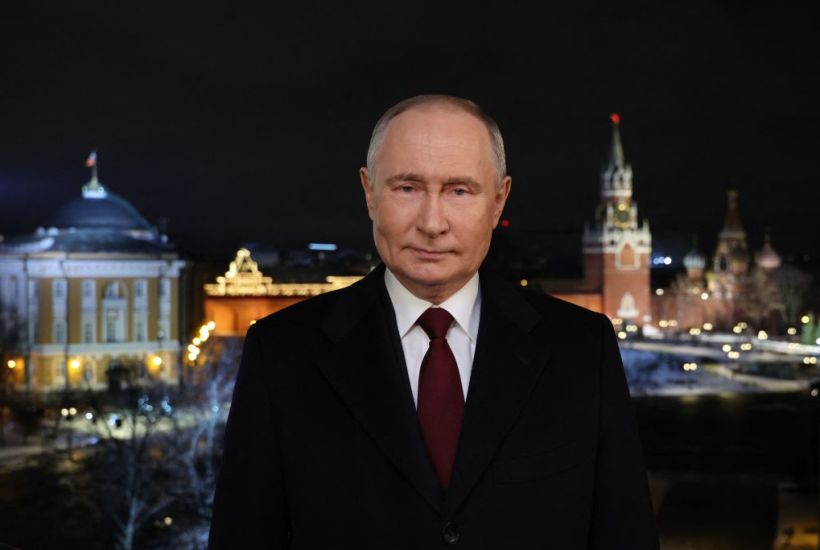With ‘don’t mention the war!’ the order of the day, it felt as if Vladimir Putin’s message to his people this year was haunted by the ghost of Basil Fawlty.
The New Year’s message is a Soviet and then Russian tradition dating back to the 1970s. It is watched widely across the country, sometimes with reverence, often with irony, but nonetheless something of a ritual observed almost regardless of class, location or political orientation.
Already a subscriber? Log in
Subscribe for just $2 a week
Try a month of The Spectator Australia absolutely free and without commitment. Not only that but – if you choose to continue – you’ll pay just $2 a week for your first year.
- Unlimited access to spectator.com.au and app
- The weekly edition on the Spectator Australia app
- Spectator podcasts and newsletters
- Full access to spectator.co.uk
Or




















Comments
Don't miss out
Join the conversation with other Spectator Australia readers. Subscribe to leave a comment.
SUBSCRIBEAlready a subscriber? Log in